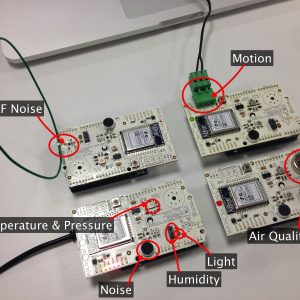- Have any question?
- (254) 729 717 002
- kidstecharts@gmail.com
Complete Java Masterclass
- Web Development
- 200 (Registered)
Course Description
With Java being an object-oriented programming language, Tim spends a significant amount of time elaborating OOP concepts and their Java implementation. The first section covers classes, constructors, and inheritance while the latter covers composition, encapsulation, and polymorphism.
Some more Java concepts are introduced in this section such as arrays, lists, boxing, unboxing, abstract classes, and interfaces. The entire next section is dedicated to Java Generics. In the subsequent sections, Tim covers features of the language such as packages, scope, and static/final keywords.
Concepts
Some more Java concepts are introduced in this section such as arrays, lists, boxing, unboxing, abstract classes, and interfaces. The entire next section is dedicated to Java Generics. In the subsequent sections, Tim covers features of the language such as packages, scope, and static/final keywords.
Collections
A rather important section in terms of understanding where a lot of useful constructs and their implementations are covered using various challenges. The topics include Java collection framework, searching, comparator, maps, sets, hash sets, etc.
JavaFX
This section takes learners from command line interface applications to graphical user interface apps. They get to learn about APIs as well as event handlers responsible for interaction between application users and the interface. Another important concept of multithreading, which gives Java an edge over its counterparts, is covered in this section. How to take care of concurrency when multiple threads are to be synchronized is explained in subsequent sections later.
I/O, Exceptions, and Filesystems
Like all other languages, Java provides users with functionality to perform input and output operations. Tim explains to learners the concepts of I/O, filesystems, and exception handling as part of this course section.
Lambda Expressions
Lambda expressions, which let you express instances of single-method classes more compactly, are one of the prominent Java feature that provides users with functional programming features. Hence, it’s important to develop a good understanding about the same.
Regular Expressions
Another useful feature which helps, especially in the field of analytics, is regular expressions. With the usage of pattern matching classes, RegEx becomes a powerful feature for any language to have.
Debugging and Unit Testing
A programmer would never underestimate the criticality of debugging skills to troubleshoot through the issues arising while coding. Tim, being a hardcore programmer, knows this well and takes learners through the details of debugging and unit testing. He elaborates the usage of watch points to step through the code to understand its execution and introduces the JUnit suite used for unit testing along with assert examples.
Databases
Database connectivity is a must-have for programming languages these days, and Java is no exception. It has various mechanisms to access many different types of databases through the many libraries available for the language. The course focuses on an open source DB tool SQLite, how to use SQL statements to perform various database operations, and how to use Java DataBase Connectivity APIs to access the database from Java code.
Network Programming
A popular choice for network applications, Java offers robust framework to design and implement client-server applications. The section explains various interfaces that Java provides for HTTP operations.
Java 9 Modules
A relatively new concept, Java modules were introduced in version 9 of the JDK. As the name suggests, modules help in categorization of the features i.e. JPMS. This section introduces the types of the modules, how to declare them and their actual usage.
Migrating Java Projects to Version 9
An important section towards the end of the course helps learners migrate Java projects written in older version to the newer version 9. These steps provide guidance to structure the project in a modular way, categorize the configuration files, and resolving the project dependencies. It’s important considering the features offered by JDK 9 to understand the migration process from older versions to newer.
Learning Outcomes
- Learn the core Java skills needed to apply for Java developer positions in just 14 hours.
-
Be able to sit for and pass the Oracle Java Certificate exam if you choose.
-
Be able to demonstrate your understanding of Java to future employers.
- Learn industry “best practices” in Java software development from a professional Java developer who has worked in the language for 18 years.
- Acquire essential java basics for transitioning to the Spring Framework, Java EE, Android development and more.
- Obtain proficiency in Java 8 and Java 11.



